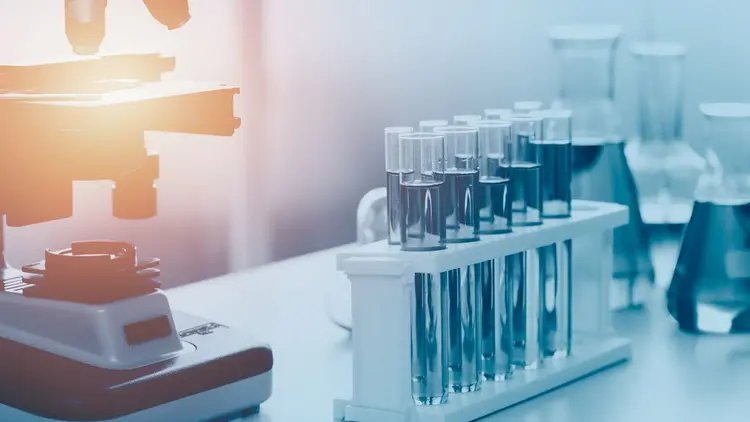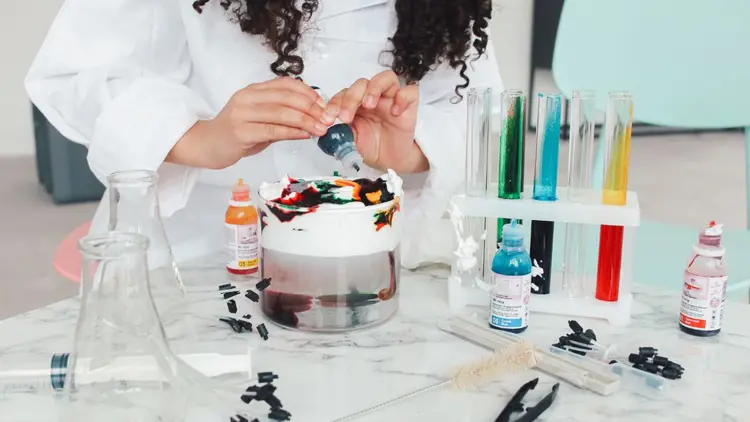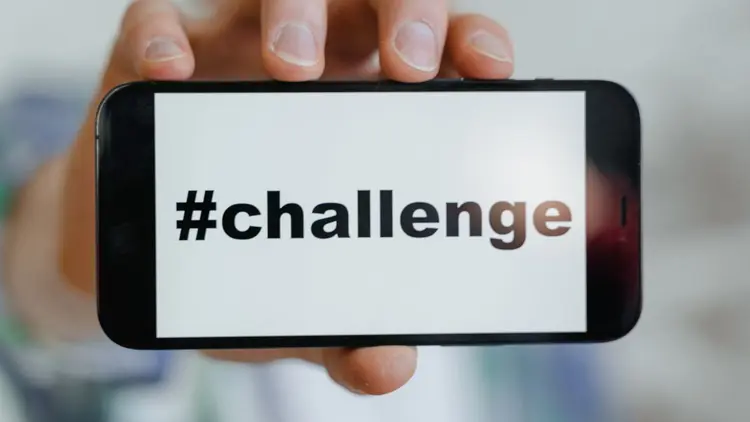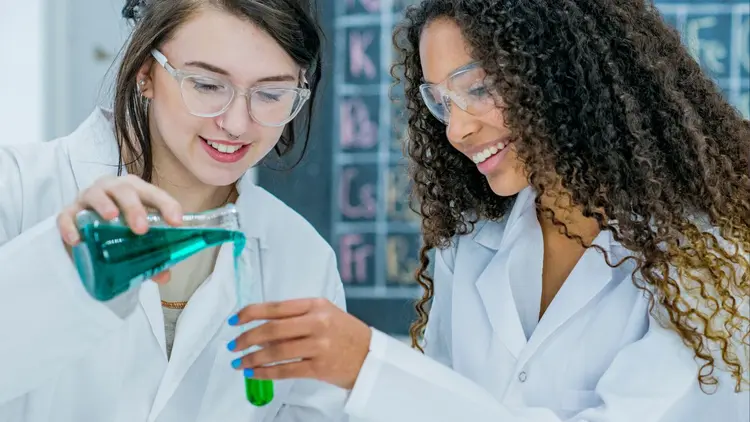
In the realm of online education, a question that often pops up is: “Can you take lab courses online?” The simple answer is a resounding “Yes!” But let’s not stop at just a yes. In this article, we’ll dive into the fascinating world of online science labs, explore how you can conduct experiments from the comfort of your home, and understand what these courses entail.

The shift towards online education has been monumental, and science courses are no exception. Today, many universities and colleges offer online lab courses in subjects like physics, chemistry, biology, and various engineering disciplines. The key to their success lies in the innovative use of technology.
Picture this: you’re conducting an experiment, but instead of being in a traditional lab, you’re at home using portable or wireless lab tools. Tools like IOlab come equipped with electronic sensors allowing students to take readings and conduct experiments virtually. These aren’t just makeshift arrangements; they are sophisticated systems designed specifically for online science labs.
Online lab courses often use video-conferencing platforms. This allows students to perform experiments and engage in a peer-review process almost like they would in a physical lab. The beauty of this system is the collaboration it fosters – you’re not just working solo; you’re part of an online scientific community.
Online science courses also heavily utilize discussion boards. Here, students can delve into conversations about lab experiments, reading assignments, and a plethora of other topics. This isn’t just about posting answers; it’s about engaging in meaningful scientific dialogue, much like you would in a campus setting.
The #1 to make money online with TikTok Search (FREE TRAINING)

Innovations in online science labs have led to the concept of “kitchen chemistry.” It’s exactly what it sounds like – using everyday items found in your home to learn complex scientific principles. This approach not only makes science more accessible but also adds an element of creativity to learning.
When enrolling in online science lab classes, you might receive a lab kit. This kit, delivered to your doorstep, contains all the necessary materials to conduct specific experiments. Alongside these physical kits, digital simulations and virtual labs are becoming increasingly popular. They offer an interactive way to understand complex scientific concepts without needing physical materials.
Embarking on an online lab science course can be an exhilarating journey into the world of scientific discovery from the comfort of your own home. These courses, with their unique blend of virtual lab components and hands-on experiments, offer a comprehensive approach to learning that rivals traditional classroom settings. Let’s unpack how you can maximize your experience in these innovative science classes.

When you enroll in an online lab course, one of the first steps will be acquiring your lab kit. This isn’t just any box of materials—it’s your personal science lab, neatly packaged and delivered to your doorstep. These lab kits are meticulously designed to include all the necessary equipment and materials you’ll need to conduct your experiments. Given the intricate logistics involved, it’s wise to register early and allow ample time for your kit to arrive. Remember, this kit is the cornerstone of your lab component, enabling you to engage in hands-on learning from virtually anywhere.
With your lab kit in hand, you’re ready to dive into the world of experiments. These aren’t just step-by-step instructions; they’re gateways to understanding complex scientific concepts through practical application.
You’ll find yourself transforming your living space into a lab setting, where every corner offers the potential for discovery. Following the detailed instructions, you’ll conduct experiments that range from simple observations to complex chemical reactions.
Documenting your process through photos or videos not only adds an element of accountability but also allows you to reflect on your experimental techniques and outcomes. This visual documentation becomes a powerful tool for both learning and sharing your scientific journey.
After the exhilaration of conducting experiments comes the critical task of reporting your findings. Crafting a lab report transcends mere documentation of results; it’s an exercise in scientific communication. This stage of your online lab course challenges you to articulate your methodology, analyze your data, and draw conclusions based on empirical evidence. Your lab report is a testament to your ability to engage with the scientific method and communicate complex ideas clearly and concisely.
Several top institutions offer exemplary online lab courses that embody the fusion of lab science and virtual learning:

These courses exemplify how online education has evolved to offer lab science courses that are both accessible and engaging. Through a combination of virtual labs, lab kits, and immersive coursework, students can explore the wonders of science in an interactive and meaningful way.
Online lab courses represent a significant advancement in the way we approach science education. They offer a flexible, engaging, and comprehensive learning experience that prepares students for a future where digital fluency and scientific literacy are paramount.
By taking advantage of these opportunities, students can gain a deeper understanding of scientific principles and apply them in innovative ways, regardless of their geographic or financial constraints.
While online lab courses might seem more tedious than their traditional counterparts, they offer unique benefits. They provide flexibility, access to resources, and often, a more personalized learning experience. Plus, they’re a boon for those who can’t easily access a physical campus.

One might argue that online labs lack the ‘real feel’ of a wet lab. However, with advancements in digital simulations and interactive tools, this gap is rapidly closing.
For many students, the ability to access lab courses online opens doors that were previously closed due to geographic or financial constraints. The convenience of studying from home can’t be overstated.
The #1 to make money online with TikTok Search (FREE TRAINING)

The trend towards online science courses and labs is not just a temporary shift. It’s part of a larger movement towards more accessible and flexible education. As technology continues to evolve, we can expect these courses to become even more sophisticated and widely accepted.
One concern students often have is whether these online courses and labs are accredited. The answer is increasingly yes. Many online lab courses are now recognized and accredited by educational institutions, ensuring that your hard work pays off in the form of valid credits and qualifications.
With the rise of online degrees and courses, being adept at online labs prepares students for a future where digital proficiency is key. It’s not just about learning science; it’s about learning how to navigate and excel in a digital world.

As we’ve seen, the question of “Can you take lab courses online?” opens the door to a world of exciting possibilities. Online lab courses are not just a convenient alternative; they’re a burgeoning frontier in science education. They offer a unique blend of flexibility, accessibility, and innovation, making science more approachable and enjoyable.
To explore more about online courses, check out these insightful articles:
In conclusion, online lab courses are not just a feasible option; they are a thriving and evolving aspect of online education. They break down barriers, foster innovation, and open up new pathways for aspiring scientists and engineers. So, if you’re pondering over enrolling in an online science course, rest assured, it’s a step towards the future of education.





